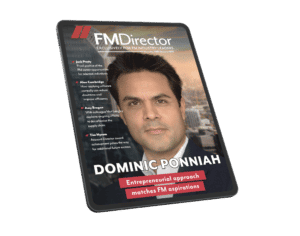The West Midlands is currently enjoying a ‘rail renaissance’ but the journey to a totally integrated, iconic transport network is ongoing
Chief executive of the West Midlands Combined Authority (WMCA), Laura Shoaf CBE is a recognised expert in transport and regeneration policy and has secured unprecedented investment in transport for the West Midlands.
In addition to her chief executive role, Laura chairs the Urban Transport Group and is also on the Board of Trustees for the Severn Valley Railway charitable trust and was, ahead of her WMCA appointment, managing director for Transport for West Midlands.
Laura may well have an Investiture to look forward to (while ceremonies have restarted there is a huge backlog for those people yet to receive honours in person) but, with the Commonwealth Games and its athletes, global dignitaries and visitors heading to Birmingham in July, and the region being in the middle of a ‘rail renaissance’ thanks to HS2, huge infrastructure projects, upgrades, redevelopments and the construction of new stations, her attention and focus remains on improving transport, connectivity, capacity and accessibility.
Making her home
Laura, who hails from New Jersey, was recognised for her work in the Queen’s New Year’s Honours List published in January, but told Rail Director that she accepted the honour on behalf of the teams that she has worked with since she made the West Midlands her home in 2002.
She said: “The honour is really a testimony to the fantastic people and the amazing teams that I have worked with, especially those at TfWM who have delivered. I am honoured on their behalf.
“I have been fortunate to work with amazing people in my career, and it is only because of them that I am being recognised. The passion of my colleagues is what has helped drive the investment in transport systems and regeneration in the West Midlands, connecting people to jobs, to schools, and universities, to their families and connecting communities to each other. I am so proud of the work we have all done, and continue to do, to make the West Midlands a better-connected region.”
Big opportunity
HS2 clearly presents a big opportunity for the whole region. As a result, there are two new stations – Birmingham Interchange in Solihull, near the airport, and Curzon Street, in Birmingham city centre. There will also be a new train maintenance depot in Washwood Heath.
Perry Barr Station, which opened in 1837 and is one of the oldest continuously operated railway station sites in the world, is being redeveloped ready for the Birmingham 2022 Commonwealth Games.
While University Station, with the University of Birmingham playing host to hockey and squash, is being redeveloped into a larger and modern station able to handle 7.2 million passengers a year.
In addition, there are ambitious plans for five more rail stations, with three on the Camp Hill line, which lies between Kings Norton on the Cross-City Line and Birmingham New Street via Grand Junction on the main lines from Derby and Coventry, as well as stations in Darlaston and Willenhall that open the corridor between Wolverhampton and Walsall.
Seizing on the opportunity, the end goal, outlined in WMCA’s HS2 Growth Strategy, is for the West Midlands to have a world-class transport system. £5 billion is being invested in nearly 200 transport projects between now and 2026.
Laura said: “Five years ago, almost jokingly, I said that the West Midlands was going to undergo a rail renaissance, and now I’m proud to say that we’re right in the middle of it. What we’re bringing about is the reintroduction of services and new services for our urban conurbation.
“The West Midlands has a good rail service but the challenge that we need to crack through investment in the WM Rail Hub, which will transform east-west rail connectivity, is capacity. We want to move as many people as we can by rail and our rail patronage has been growing over the past decade. There is a reason that urban places have succeeded over hundreds of years, and while I know we have a ‘COVID blip’ at the moment and there is a lot of discussion around what that means, ultimately our cities have survived war and disease and other upheaval and continue to thrive, so we have to think long term. If we’re going to meet our climate change objectives we really need to look at the role rail plays in that.
“Anything in rail takes a long time but the impact of HS2 and the improvements to north-south connectivity, new stations, station redevelopment, our longer-term ambitions and getting the Rail Hub right, and the related investment all of that will drive, will bring tremendous benefits to the region.”
Transform connectivity
Key to all of this, Laura said, is further devolved powers to the regions. While she recognises that the Williams-Shapps Plan for Rail and the Levelling Up White Paper are both steps in the right direction. Laura has a sense they stop short by keeping power in the centre, away from local government, when there’s a genuine opportunity to go further. She said: “There’s definitely some intent about the way things will work going forward and I am optimistic we will see that come to fruition.
“I believe wholeheartedly in devolution because ultimately we know in our region what we need and I would argue that we will always know that better than anyone in Whitehall. I take the train every single day and I know what the service is like, what the service needs, I know what passengers want and need, because I am one. So for that reason I will continue to be an advocate for greater devolution.
“A London-style transport system is our ambition. It’s a light-hearted take but we will know we’ve been successful if we can sell a tea towel with our network on it like our colleagues in London can.
“Imagine being able to have a totally integrated, iconic network. That’s the dream and that’s what we’d like to have. We want a system that’s intuitive, affordable, that is reliable, safe and properly integrated so that we don’t have different transport modes competing with each other for passengers. That’s how we will do the best by people.”
Pricing is another area where Laura wants to see greater strides made. Against a backdrop that this month will see a train fare rise of almost double consumer prices index inflation, based on pre-COVID price structures designed to cope with capacity issues, there’s an urgent need to attract passengers via lower fares.
Price structure
Laura added: “Affordability and ticketing is absolutely critical and we will have to measure that against integrated ticketing and price structures in cities like London. I would love to see us make some progress on integrated ticketing, and that’s not just here, it’s a national issue. How do we do better on ticketing, how do we get the back offices to genuinely talk to each other and get sensible pricing and ticketing options for people?
“Pricing is one of the biggest challenges in getting people to return to rail and we need to make it competitive. Different modes shouldn’t be differently priced or difficult to move between. Making progress on this is about being part of the conversation, continuing to lobby and continuing to present the evidence to influence policy.
“We’re seeing positive signs that passengers will return but when they do it will be different.
We’ve been talking as an industry for years about spreading the peak, getting the most out of the capacity we have and a change to flexible working is beneficial and presents an opportunity, which is actually a great outcome from what has been a challenging two years during the pandemic.
“We have a connectivity strategy we published years ago that is based around the principle that every person in this region should be able to access our main stations within 45 minutes by public transport. The schemes we are investing in and building, whether Bus Rapid Transit, rail or our Metro system, are about achieving just that.
“We don’t just want people to be able to get on and off trains at stations but capitalise on the associated benefits those stations will bring to the region in terms of employment opportunities in and around those stations, and for those stations to be destinations in their own right.
“Connectivity is hugely important and it is really important that people can access that. Equality of access is vital, as is encouraging people to travel sustainably. Public transport is social justice – we can’t have one without the other and we need to make sure our systems are there for those who rely on them.
“You know when it works, when you’re in a city where the system works because it’s simple, seamless, affordable and reliable. In the West Midlands we have a world-class region but we don’t yet have a world-class system. But we’re working on it.”







